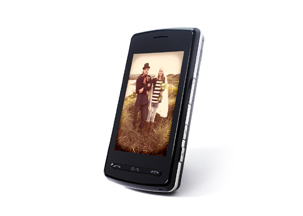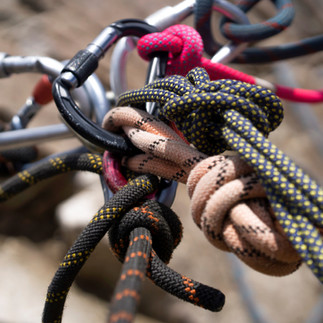Survival Essentials: Must-Have OTC Medicines & Gear for War-Time Emergencies
- Anil Dev G
- May 7, 2025
- 4 min read

Preparing an emergency survival kit is crucial in uncertain times, especially during a war scenario when access to medical facilities and supplies may be limited. Stocking up on essential **over-the-counter (OTC) medicines** and **medical equipment** can help you manage common injuries, illnesses, and emergencies effectively.
**Building a Comprehensive Emergency Survival Kit**
A well-rounded emergency survival kit should include medicines and equipment to treat wounds, infections, and common ailments, ensuring you can care for yourself and others in critical situations.
---
## **1. Essential Over-the-Counter Medicines**
These medications can help manage various health issues when professional medical help is unavailable.

### **Pain Relief & Fever Reducers**
- **Paracetamol (Acetaminophen)** – Helps reduce fever and relieve mild to moderate pain.
- **Ibuprofen** – Works as a painkiller and anti-inflammatory for muscle aches and joint pain.
- **Aspirin** – Can be used for pain relief and as an emergency treatment for heart attacks.
### **Digestive Medications**
- **Antacids (e.g., Omeprazole, Ranitidine)** – Help relieve acid reflux and heartburn.
- **Anti-diarrheal (e.g., Loperamide, ORS sachets)** – Controls diarrhea and prevents dehydration.
- **Laxatives (e.g., Bisacodyl, Psyllium husk)** – Useful for treating constipation.
### **Antihistamines & Allergy Medication**
- **Diphenhydramine or Cetirizine** – Helps treat allergies, insect bites, and mild allergic reactions.
- **Epipen (if prescribed)** – Emergency use for severe allergic reactions.
### **Cold, Flu & Respiratory Medications**
- **Cough Syrup (Dextromethorphan, Guaifenesin)** – Helps with congestion and coughing.
- **Nasal Decongestants (Phenylephrine, Oxymetazoline)** – Eases nasal blockages.
- **Steam inhalers or menthol rubs** – Helps relieve congestion and breathing difficulties.
### **Antibiotic Ointments & Wound Care**
- **Antibiotic creams (Neosporin, Bacitracin)** – Helps prevent infections in wounds.
- **Antiseptic solutions (Betadine, Hydrogen Peroxide, Alcohol wipes)** – Cleans wounds and prevents infections.
### **Eye & Ear Care**
- **Lubricating eye drops** – Prevents dryness and irritation in dusty environments.
- **Ear drops for wax buildup or infections** – Helps relieve ear pain and blockage.
### **Multivitamins & Supplements**
- **Vitamin C, D, and B-complex** – Strengthens immunity and maintains overall health.
- **Electrolyte sachets** – Helps replenish fluids during dehydration.
---
## **2. Medical Equipment & Supplies**
A survival kit must include medical tools to assist in wound care, treatment, and monitoring health.
### **Basic First Aid Items**
- **Sterile bandages (various sizes)** – Essential for covering wounds.
- **Adhesive medical tape** – Secures bandages in place.
- **Cotton gauze pads** – Helps control bleeding.
- **Butterfly closures or sterile strips** – Useful for wound closure.
### **Disinfectants & Cleaning Supplies**
- **Alcohol wipes** – Essential for sanitizing hands and surfaces.
- **Hand sanitizer** – Important in maintaining hygiene in survival situations.
- **Soap (antibacterial)** – Helps prevent infections.
### **Respiratory & Breathing Assistance**
- **Face masks (N95 or surgical masks)** – Protects against dust and airborne contaminants.
- **Pocket CPR mask** – Enables safe rescue breathing during emergencies.
- **Nebulizers or inhalers (for asthma patients)** – Helps those with respiratory issues.
### **Diagnostic & Monitoring Tools**
- **Thermometer (digital or infrared)** – Essential for monitoring fever.
- **Blood pressure monitor** – Helps track blood pressure in stressful conditions.
- **Blood sugar monitoring kit** – Necessary for diabetics.
- **Oximeter** – Measures oxygen saturation, useful for respiratory distress.
### **Wound Care & Trauma Supplies**
- **Tourniquets** – Stops severe bleeding.
- **Sterile gloves** – Prevents contamination during wound care.
- **Scissors & Tweezers** – Used to cut bandages and remove debris from wounds.
- **Instant cold packs** – Helps reduce swelling and inflammation.
### **Emergency Surgical Tools (if trained)**
- **Suture kit** – For closing wounds in dire situations.
- **Hemostatic agents (QuickClot)** – Helps control severe bleeding.
- **Emergency airway management tools** – Only for trained individuals in extreme scenarios.
---
## **3. Additional Survival Essentials**
Apart from medical supplies, other emergency essentials ensure readiness and resilience.
### **Food & Hydration**
- **Non-perishable food (canned items, energy bars)** – Provides necessary nutrition.
- **Water purification tablets or filters** – Ensures safe drinking water.
- **Thermal blankets** – Helps maintain body temperature in extreme conditions.
### **Lighting & Communication**
- **Flashlight & extra batteries** – Necessary in low-light situations.
- **Emergency radio (solar or battery-powered)** – Keeps you informed.
- **Whistle** – Helps signal for help.
### **Personal Hygiene & Sanitation**
- **Wet wipes** – Helps maintain cleanliness.
- **Toothpaste & toothbrush** – Ensures oral hygiene.
- **Sanitary pads & tampons** – Essential for menstruating individuals.
### **Self-Defense & Emergency Preparedness**
- **Pepper spray** – For protection against threats.
- **Multipurpose survival knife** – Useful for various survival needs.
- **Fire-starting kit** – Essential for warmth and cooking.
---
## **Final Thoughts**
Preparing an emergency survival kit with OTC medicines and essential medical equipment can be lifesaving in times of crisis. **Regularly check and update** supplies to ensure they remain effective and unexpired. Additionally, having basic first-aid knowledge enhances your ability to use these tools efficiently.
In times of war or disaster, staying prepared can **make the difference between survival and distress**. Make sure your kit is stocked, accessible, and tailored to meet your specific medical needs.
Would you like to include any additional survival tips? 🤔



























That’s a solid list of essentials. One thing I’d add is having a reliable IFAK (Individual First Aid Kit) on hand, since injuries are one of the most immediate threats in any crisis situation. Stocking up on OTC meds is great, but when it comes to bleeding control or trauma care, specialized gear makes a huge difference.
If anyone’s looking for ready-to-go kits, FlareSyn offers well-built IFAK trauma kit designed for emergencies. They’re compact, easy to carry, and include the critical tools you’d want in a war-time or disaster scenario.